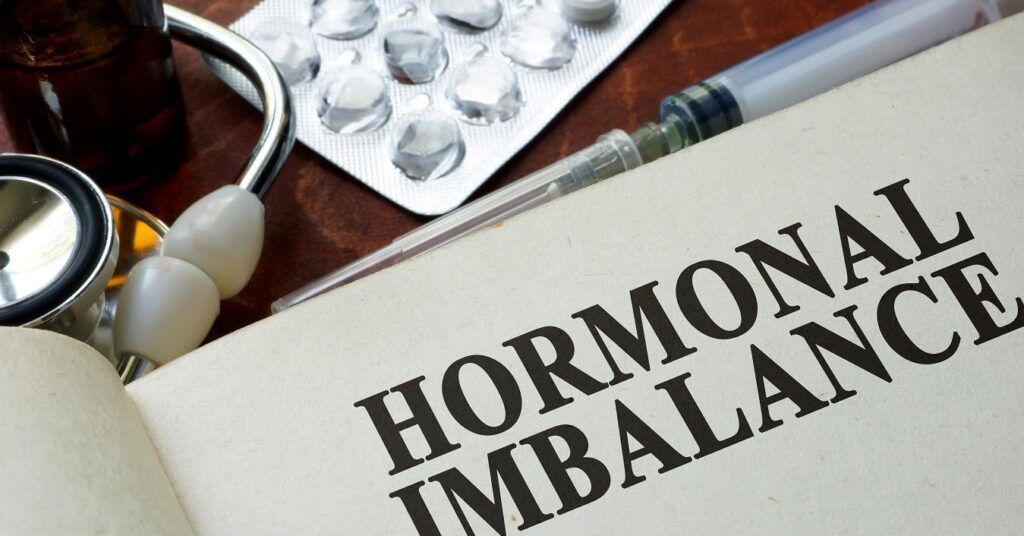Sleep is a cornerstone that keeps people rejuvenated and ready to tackle each new day. Yet, a powerful force within you can disrupt this delicate equilibrium: hormones. These chemical messengers play a pivotal role in regulating sleep patterns, and any imbalance can trigger a cascade of consequences, from insomnia to chronic fatigue. This article will delve into the intricate relationship between hormones and sleep and also look at how HRT from a hormone institute can help.
Melatonin
Imagine stepping into a dimly lit theater to witness a mesmerizing symphony. In people’s bodies, melatonin plays the conductor role, orchestrating the sleep-wake cycle. Produced by the pineal gland, this hormone takes cues from darkness, signaling that it’s time to unwind and embrace slumber. However, disruptions can occur when artificial lights from screens and lamps interfere, throwing this symphony off-key.
Cortisol
Meet cortisol, the hormone that gears people up for the day’s challenges; as dawn breaks, cortisol levels surge, providing a natural alarm clock to rouse them from sleep. But an imbalance in cortisol, often linked to stress, can turn this wake-up call into an incessant ring, making it hard to wind down when bedtime arrives.
Thyroid
Deep within your neck, the thyroid gland silently regulates your metabolism. Thyroid hormones influence your energy levels and body temperature, inevitably impacting your sleep. An overactive thyroid (hyperthyroidism) can lead to restlessness and insomnia, while an underactive thyroid (hypothyroidism) might induce prolonged drowsiness and fatigue.
Sex Hormones
Testosterone and estrogen, the primary players in the realm of sex hormones, also wield influence over your sleep quality. Fluctuations in estrogen levels, particularly during menstruation and menopause, can cause women to grapple with sleep disturbances. Similarly, reduced testosterone in men, often linked with age, can contribute to sleep difficulties.
Ghrelin and Leptin
Think of ghrelin as the appetite-inducing gremlin and leptin as its counterpart, the satiety sentinel. These hormones not only regulate hunger but also influence sleep. Ghrelin, typically active before meals, might disrupt sleep if elevated at inappropriate times. On the other hand, an imbalance in leptin could lead to incessant late-night cravings, making peaceful slumber a distant dream.
Adrenaline and Norepinephrine
In times of stress, adrenaline and norepinephrine flood your system, triggering the “fight or flight” response. This ancient survival mechanism can be helpful in emergencies but detrimental when chronic stress becomes a norm. Elevated levels of these hormones can pave the way for insomnia, leaving you tossing and turning as worries occupy your mind.
Growth Hormone
During deep sleep, your body embarks on a journey of repair and rejuvenation, with the growth hormone taking center stage. This hormone aids in tissue and cell restoration, contributing to overall vitality. However, disruptions in the natural rhythm of growth hormone release, often seen in sleep-deprived individuals, can impede this crucial recovery process.
Balancing Hormones for Restful Nights
Maintaining harmony within your hormonal orchestra requires a multifaceted approach. Prioritizing a sleep-conducive environment by dimming lights before bed and minimizing screen time can help melatonin orchestrate a peaceful slumber. Stress management techniques, such as meditation and deep breathing, can prevent cortisol from stealing the spotlight when it’s time to sleep.
Adopting a balanced diet and regulating meal times can ensure appetite doesn’t disturb your sleep. Regular exercise, wisely timed to avoid close proximity to bedtime, can support healthy hormone levels while also promoting restful nights.
Exploring Hormone Replacement Therapy (HRT)
For individuals grappling with sleep disturbances due to hormonal imbalances, hormone therapy can offer a potential solution. Receiving Hormone Replacement Therapy (HRT) from a hormone institute involves supplementing deficient hormones, such as estrogen or testosterone, to restore balance. This approach can alleviate sleep-related symptoms caused by hormonal fluctuations, such as hot flashes disrupting sleep in menopausal women or low testosterone levels affecting sleep quality in men.
Conclusion
In the grand tapestry of human physiology, hormones, and sleep are intricately woven threads. Their dance shapes your daily rhythm, influencing the ease with which people drift into dreams and emerge revitalized. Each hormone plays a vital role, from melatonin’s gentle baton to cortisol’s wakeful call. Recognizing the impact of hormonal imbalances on your sleep patterns empowers you to take charge of your health and embrace the serenity of restful nights.
